What to Discuss With an Optometrist During an Eye Exam
Navigating the world of eye health can often feel daunting, especially when attending an eye exam. Yet, engaging proactively with your eye care professional holds the key to ensuring your visual health is at its best. By asking the right questions, you can gain valuable insights into your eye condition, potential risks, and the best approaches to care moving forward. Understanding the current state of your eyes can provide peace of mind and enable you to take control of any potential issues before they escalate.
Understanding Your Current Eye Health
Asking about your current vision status during an eye exam is fundamental. This not only includes your visual acuity but also examines how well your eyes work together. Understanding your vision status helps set a benchmark for any future changes. It allows you to draw comparisons and notice if specific conditions or environmental factors affect your eyesight over time.
During your eye exam, it’s important to ask about any specific risks for eye diseases. Many conditions, like glaucoma or macular degeneration, often show no symptoms until significant damage has occurred. Understanding your risk factors, whether genetic, lifestyle-related, or linked to other health issues, can help guide the preventive measures you need. Be sure to discuss these risks with your eye care provider so your eye care regimen can be tailored to your needs.
Discussing changes in vision or discomfort is equally important. Visual discomfort can manifest in various forms, such as eye strain, dry eyes, or blurred vision. Sharing any changes or discomforts helps your doctor fine-tune their examination and offer personalized advice. A detailed walkthrough of your eye test results can often bring clarity to any existing issues.
Evaluating Eye Changes and Symptoms
One of the critical questions to ask is about potential causes for any vision changes you've noticed. Sometimes, changes can result from something as simple as tiredness or more concerning issues like developing eye conditions. By understanding the root of these changes, you can take the necessary actions to prevent further damage. Moreover, it opens a dialogue with your optometrist to explore any underlying reasons contributing to changes in your eyesight.
Inquiring about common symptoms of eye strain helps in daily life adjustments. Eye strain is typical for individuals who spend extended periods on digital devices. Discussing these symptoms and their implications with your eye doctor may lead to lifestyle adaptations, such as taking regular breaks or altering your workspace setup. These small changes can significantly alter your daily experience by alleviating symptoms and reducing discomfort.
When you go for an eye exam, it’s important to discuss any unusual symptoms you may be experiencing. Symptoms such as flashes of light, floaters, or sudden changes in vision can indicate a range of conditions, from harmless to serious. Addressing these symptoms promptly allows for a quick response if they signal a more severe issue. Be sure to talk with your optometrist about when a follow-up visit might be necessary, supporting a proactive approach to maintaining your eye health.
Understanding Eye Diseases and Conditions
Inquiring about glaucoma risks and prevention is essential as this is a condition that can lead to vision loss if untreated. Knowing your risk level can guide you and your eye care professional in taking preventative actions. Regular screenings for glaucoma are crucial, and understanding their frequency in your specific case can prevent potential sight loss. Moreover, discussions around prevention provide insights into potential lifestyle changes or treatments.
Ask about cataract development and treatment. Cataracts are prevalent, especially with increasing age, but early detection and treatment can significantly enhance life quality. According to VisionCenter.org, 94% of cataract surgery patients in the United States achieved 20/40 or better vision by 90 days post-operation, demonstrating the effectiveness of modern treatment options. Engaging in discussions about symptoms and procedures before they're needed ensures you're well-prepared for potential issues.
Discussing age-related macular degeneration (AMD) is critical as this condition affects many individuals over 50. Knowing AMD's symptoms, such as blurred or reduced central vision, can facilitate early detection. It is also invaluable to understand preventive measures, like dietary changes or specific medications, to slow the progression of AMD. Additionally, understanding the available treatments helps plan in case the condition develops.
Exploring Treatment Options and Recommendations
Asking about vision correction options during your eye exam is vital, especially if you experience any vision impairment. Understanding the best methods, such as glasses or contact lenses, can significantly improve your quality of life. Discussing the advantages and disadvantages of each option helps you make informed decisions based on your lifestyle and prescription. Additionally, your eye exam offers a chance to explore the latest technologies available for vision correction.
Inquiring about the suitability of laser surgery offers insights into alternative vision correction routes. While not suitable for everyone, it could provide significant benefits for those who qualify. Discussing specifics, such as potential risks and success rates, will help assess if this is the right choice. It's essential to weigh these factors against your current vision issues and overall health. A comprehensive conversation with your provider ensures you're considering all viable options for enhancing your vision.
Understanding prescription changes and updates is another key area. Changes may occur due to aging or progressing eye conditions and require precise updates to your current eyewear. Regular check-ups with your optometrist ensure your prescription is always optimized for the best results. Moreover, discussing updates can highlight any signs of conditions that need further investigation. An accurate prescription is crucial for everyday comfort and visual clarity, reinforcing the importance of staying informed on changes.
Managing General Health and Its Impact on Vision
Discussing the impact of systemic diseases on vision highlights the interconnectedness of your overall health and eye health. Conditions such as diabetes and hypertension have profound effects on the eyes and require additional focus during eye exams. Diagnosing eye changes early on often detects systemic issues, allowing for timely medical intervention. This highlights the importance of managing these conditions with the assistance of your healthcare provider.
Inquiring about the effects of medications on eye health is also essential. Certain drugs, though beneficial for some ailments, can adversely affect your eyes. Discuss potential side effects with your optometrist to manage and monitor changes in your eye health. Through these discussions, alternatives or additional treatments to protect your eyes can be considered. Regular communication with your eye care provider ensures that any medication-related issues are caught early and addressed promptly.
Understanding the relationship between fitness and vision connects physical activity with ocular health. Regular exercise has been linked to maintaining healthy intraocular pressure and reducing the risk of developing conditions such as glaucoma. Conversations about fitness routines complement your overall eye health strategy. Asking about stress management for better eye health and the impact of hydration on eyes also broadens your approach to maintaining ocular health.
Effectively communicating with your eye care professional can significantly impact your eye health. Asking informed questions enables a better understanding of your current condition, potential risks, and available preventative measures. By maintaining continual dialogue with your optometrist, you ensure proactive monitoring and management of your vision health. Open communication is crucial during an eye exam, highlighting your role in safeguarding and optimizing your eye health. Talk to the professionals at Optical City to discuss your options for preserving your vision today.
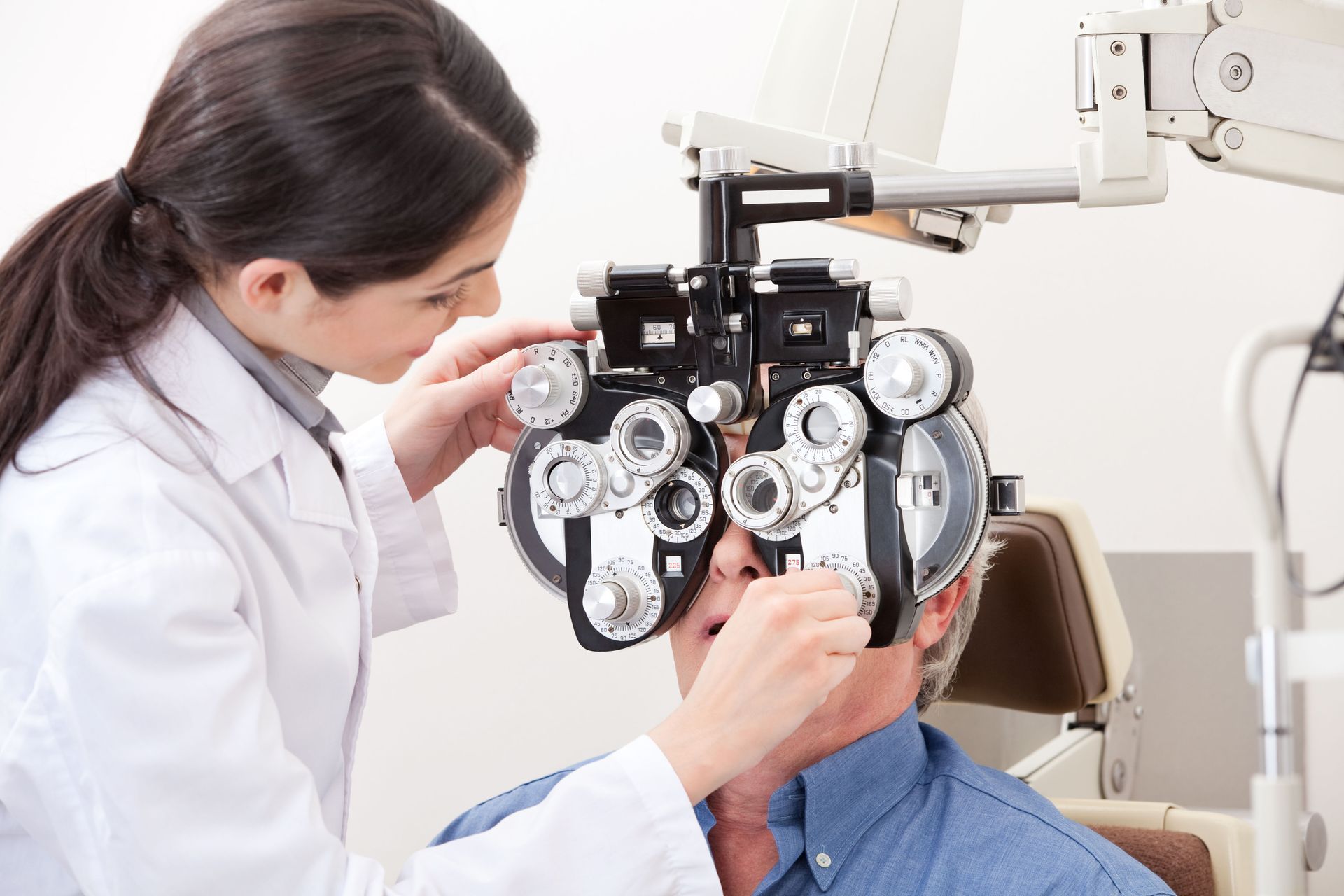
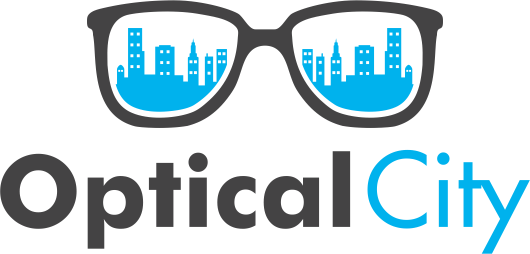
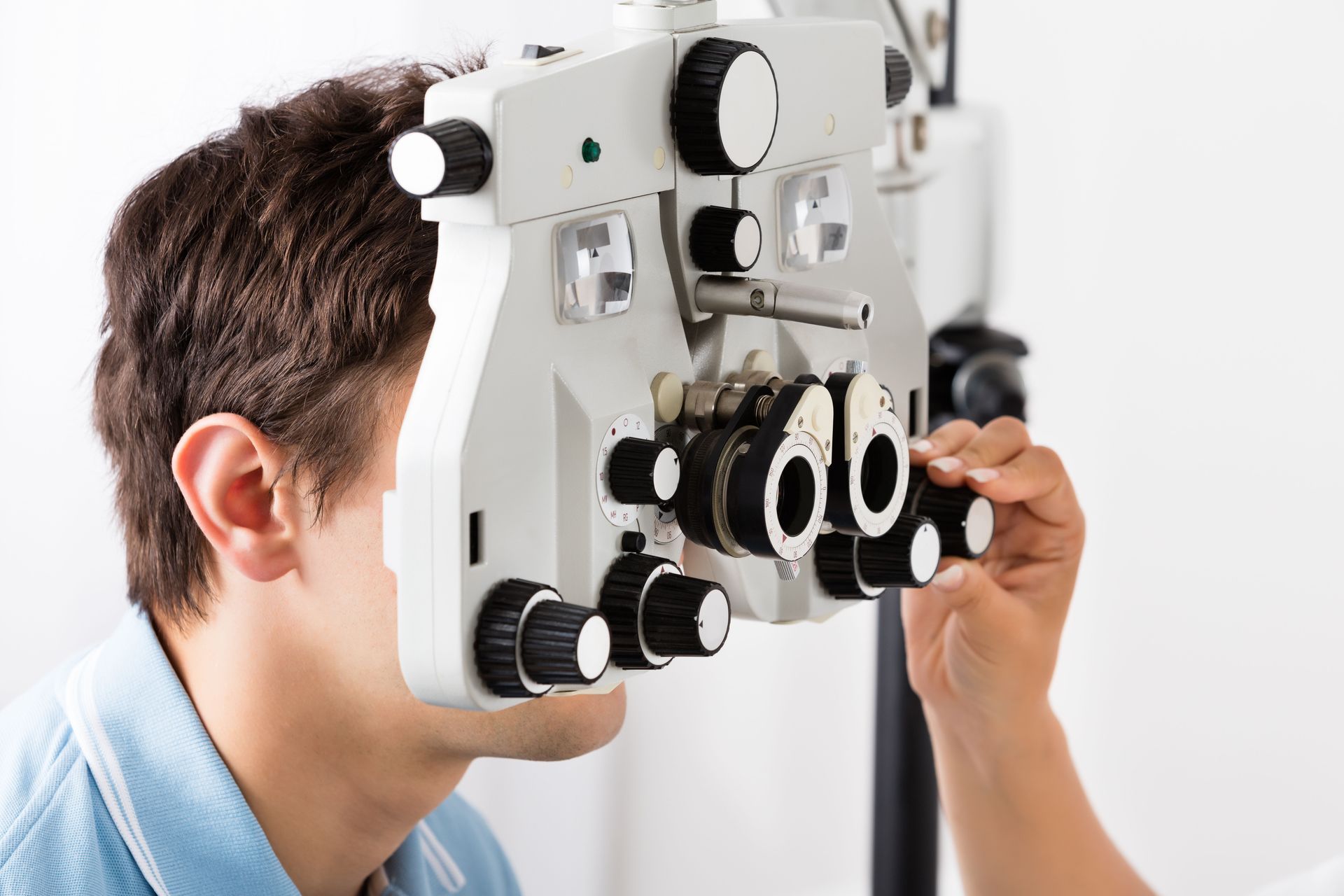
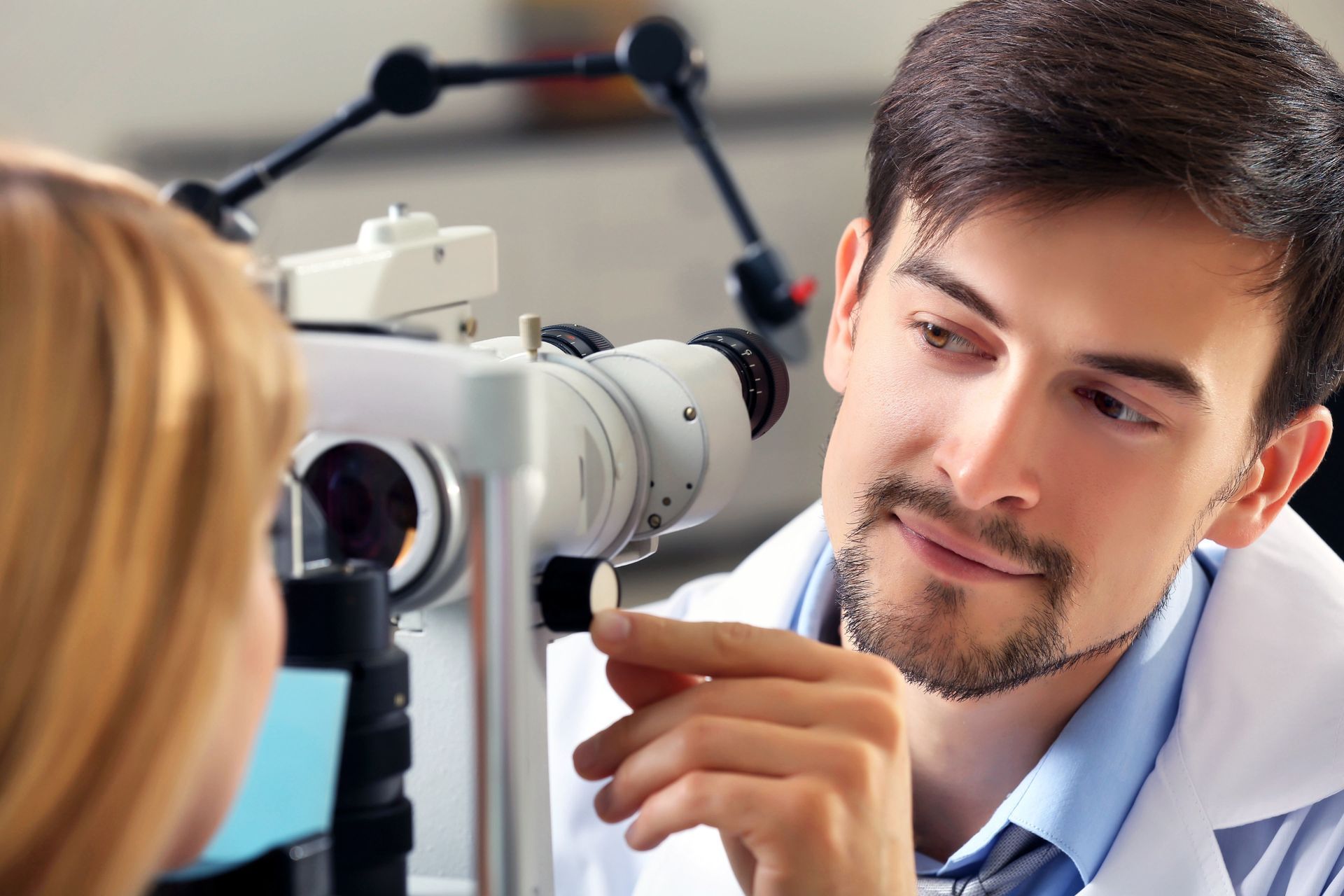
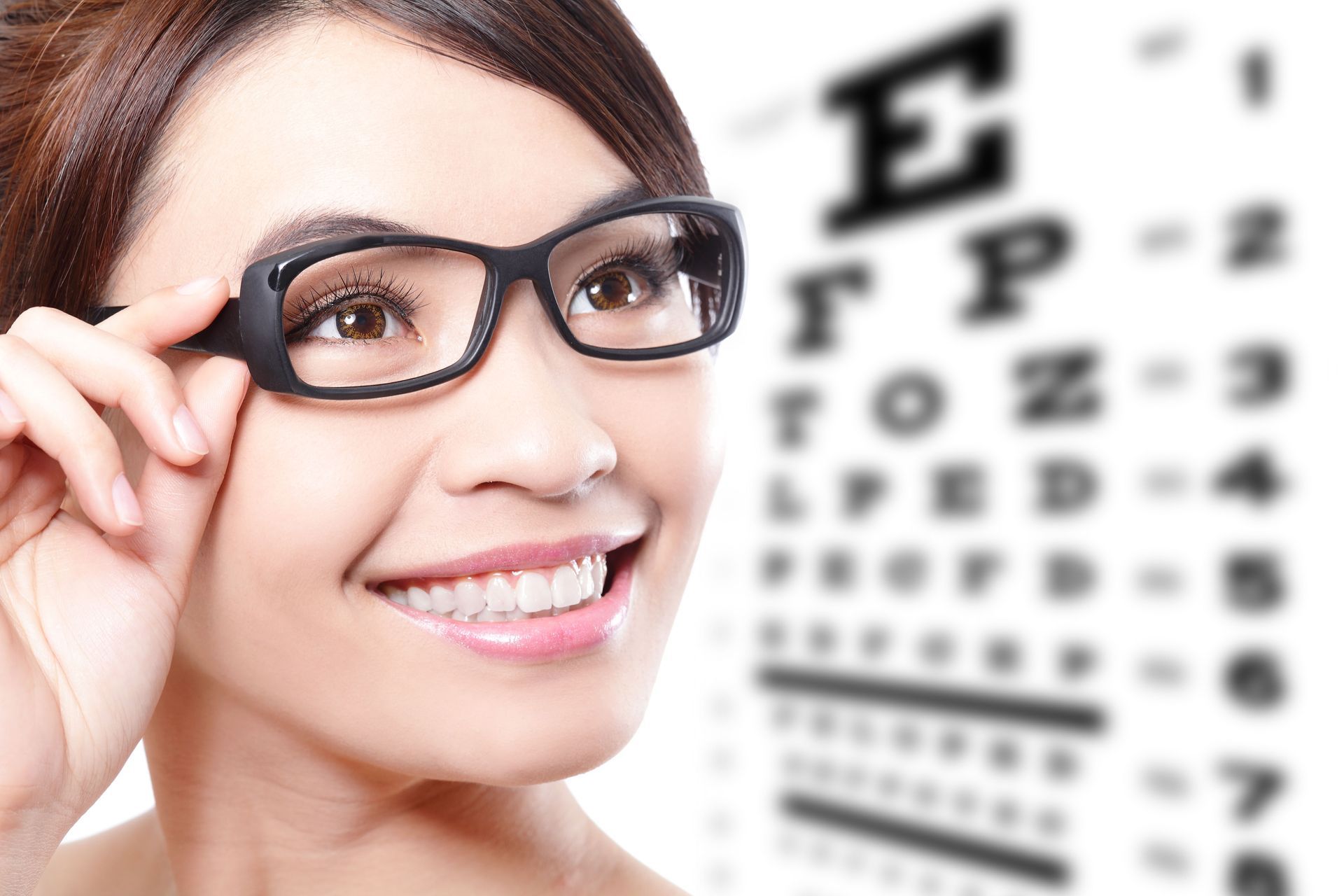
Share On: